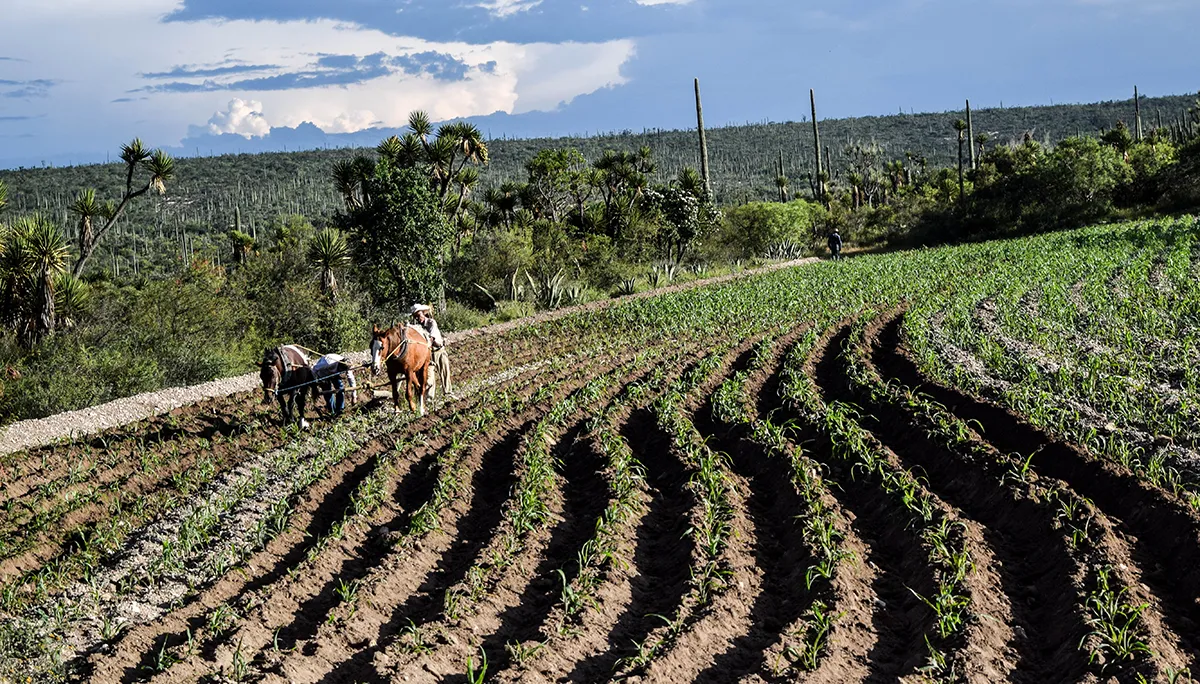Repricing and Strengthening Farmer’s Knowledges and Skills in the Santiago Acatepec Community
Organization: Departamento de Agroecología de la Universidad Autónoma Chapingo
Mission: Chapingo Autonomous University’s Department of Agroecology trains professionals who promote sustainable agriculture in harmony with environmental conservation, biodiversity and Mexico’s cultural diversity.
Location: Santiago Acatepec, Municipality of Caltepec, in southern Puebla.
Communities that will directly benefit from the project: The communities of the Santiago Acatepec agricultural region: Acatepec centro, Atecoxco, Plan de San Miguel, Manrubio and Sabino Farol.
Country: Mexico
Other Organizations Involved: The Communal Property Commission of Santiago Acatepec (Comisariado de Bienes Comunales de Santiago Acatepec) is working with its members to transform the community of Santiago Acatepec, in the Municipality of Caltepec, Puebla, into an “agroecological beacon,” which influences how farming is done in other communities in the region.
The Tehuacán-Cuicatlán Biosphere Reserve (Reserva de la Biosfera Tehuacán-Cuicatlán—RBTC). The project will coordinate with the RBTC to promote environmental education activities and disseminate agroecological technologies, which harmonize agriculture with environmental conservation and biodiversity.

@ Areli Buenabad Gallegos
Background
Santiago Acatepec is an Indigenous community located in the influence area of the Tehuacán-Cuicatlán Biosphere Reserve (RBTC), an arid region in southern Puebla. Like other communities in the region, it is a steward of one of the world’s most biodiverse deserts, as well as an heir to a 7,000 year-old agricultural tradition.
Thanks to farmers’ knowledge and traditional farming practices, it’s possible to practice agriculture under conditions of scarce precipitation, while also conserving the soil, biodiversity and native genetic resources. However, as droughts increase, due to climate change, farmland is being abandoned and food production has been affected.
In response, the project proposes to promote the community’s empowerment and enhance its productive capacities through a knowledge-dialogue process and the extension of agroecological techniques.
Goals
At least 60 percent of the community’s household production units strengthen their capacities to produce healthy and nutritious food in keeping with their food culture, while also contributing to environmental conservation and biodiversity.
Main activities
- Conduct participatory assessments of the productive capacities of production units.
- Implement a program to enhance farmers’ knowledge and skills and thereby ensure the practice of agriculture in the context of climate change.
- Implement a technical support program wherein farmers and professional agroecology instructors support families in the appropriation and use of traditional and agroecological farming practices.
Expected outcomes
- An estimate will be made of the food production capacity of the production units and the environmental and social factors affecting food production capacity will be identified.
- An agreement will be reached with the community’s families regarding which traditional agricultural practices and agroecological techniques shall be implemented in their production units.
- A field school will be established as a space for sharing farmers’ knowledge and training on traditional agricultural practices and agroecological techniques.
- A technical support process will be carried out to ensure the adoption and implementation of the field school’s findings and recommendations.
- Farmers instructors will be trained to ensure that the field school continues to operate beyond the project’s termination.
- An assessment will be made of the changes in families’ food production capacities and the degree of adherence to the principle of conserving while producing and producing while conserving.